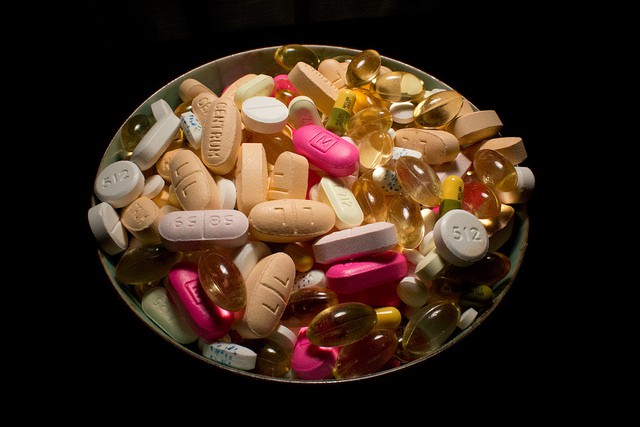“So long as you have food in your mouth, you have solved all questions for the time of being,” wrote Franz Kafka. We can understand these words on many different ways. We need for mere existence, in the first place; it provides us with nutritive elements necessary for growth and development; the essential nutrients are there to build up and maintain our immune system and keep us healthy and strong. By combining a healthy diet with regular workout, you will certainly look at life from a completely different standpoint.
But what about supplements? What is their part in our nutrition? Are they helping or setting us back? There are 6 nutrients that are essential for us: carbohydrates, proteins, fat, vitamins, minerals and water. We have our daily intake of them by eating food. Supplements, on the other hand, are there to fill in the gaps. If we do not have / are not able to have the necessary amount of proteins or carbohydrates, we would then want to supplement our body reserves.
According to WebMD’s Lifestyle Guide, if you choose to add a supplement to your nutrition, the advice is to decide about these key things: In what way would they help you? How much and how long do you need it? In which form would you like it (powder, liquid, pills)? Are there side-effects and can I take it with other medications?
Protein
Our body cells are made out of protein, it is their prime structural component. Protein is also responsible for regeneration of our body tissues. We can break down proteins further into amino-acids and out of 20 amino-acids, 9 of them are essential and could only be provided through a diet because the body cannot synthetize them. Foods that provide you with necessary proteins are meat (steak, ground beef, chicken and turkey breast), dairy products (greek yoghurt, cottage and swiss cheese), seafood (tuna, octopus, salmon), eggs and beans. Besides these natural protein sources, those who are in need for extra protein can always rely on the good old whey protein supplements. Whey protein is an undefeated champion in protein supplementation category with a high biological value (it is a cheese making bi-product).
Creatine
It is produced naturally in liver, kindeys and pancreas. It is an organic acid which supplies energy to muscles (primarily). Best natural sources of creatine are meat (venison, bison, buffalo, turkey and chicken breast), then oats, peanuts, coconuts and soybeans. Instead of eating few pounds of raw meat in order to absorb 5 grams of creatine from it, that amount of it is provided in one teaspoon of creatine powder.
Fat
It is an energy source. When we consume fat, the absorption of fat-soluble vitamins is increased (vitamins A, D, E and K). Of course, there are healthy and unhealthy sources of fats, the first ones being: walnuts, oils made of vegetables and fish (salmon and mackerel – rich in Omega-3 oil). High quality fats are also to be found in avocado, different seeds and nuts. Fish oil supplements are also good for heart diseases, lowering blood pressure and are usually made in pill form.
Vitamins/Minerals
Essentially all types of food – meat, dairy, vegetables and fruits – are rich in some vitamins and minerals.
Calcium – milk, fortified cereals, kale;
Fiber – oatmeal, peas, beans, fruits;
Magnesium – Wheat, nuts, potatoes, green leafy vegetables, ;
Iodine – beef, turkey, soybeans, spinach;
Selenium – seafood, Brazil nuts, organ meats;
Vitamins A (potatoes, carrots, spinach); B1-B7 (grain breads, cereal, organ meats); B12 (fish, dairy products, poultry); C (citrus fruits, tomatoes, broccoli, red and green peppers); D (fish liver oils, fortified cereals), E (vegetable oil, sunflower seeds, peanut butter); and K (green leafy vegetables). For creating a diverse and nutritious diet for yourself, grab a cookbook for some new recipes and start slicing, grilling, blending and mixing those vegetable and fruit juices. The dishes are delicious and will certainly make your day. Vitamins and minerals as supplements (usually referred to as multivitamins) are to be found in liquid, tablet and powder form.
Use supplements to fill the gap in your diet, not to compensate organic nutrients with them. Find out what form of supplements suits you best and what you are actually in deficit. With a healthy lifestyle and an exercising routine, you can supplement your body with all the necessary elements for its proper function. Also, when buying supplements, you have to be careful. Dietary supplements are not regulated the way medicines are, so the claims in the commercials and on the packages may be false, not supported by thorough scientific research.


